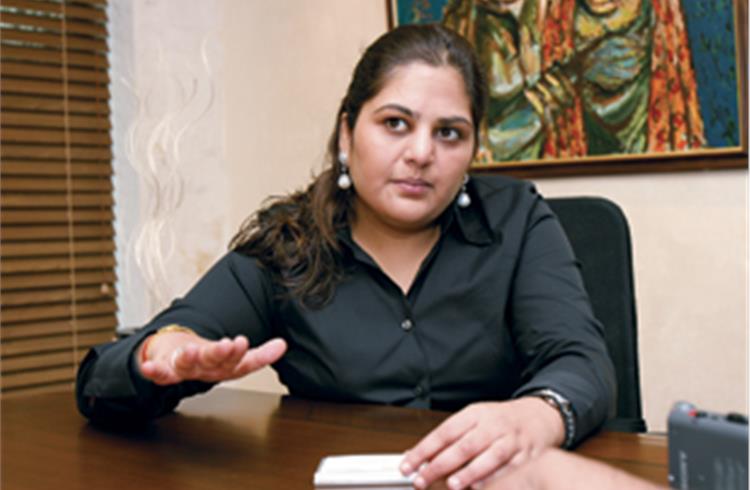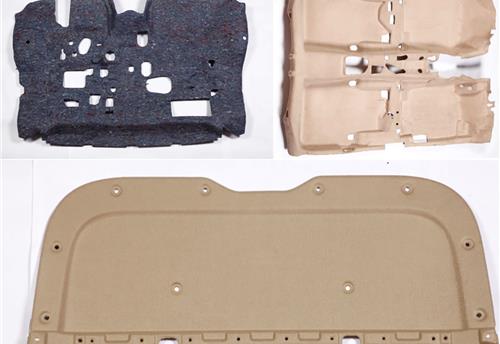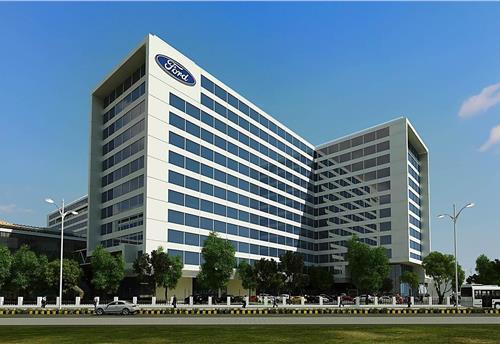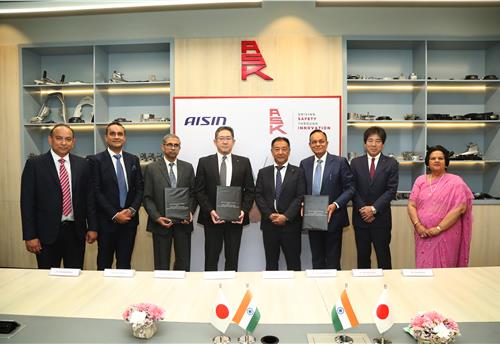Munjal eSystems sees booming business ahead
India’s leading ERP solution provider is bullish on the component industry.
Shefali Munjal, deputy chief executive of Hero Corporate Service (a Hero Group company), told Autocar Professional that over 70 percent of organisations in India plan to increase their ERP spending in 2006, reflecting pent-up demand following several years of IT cost-cutting. More than 300 ERP implementations took place last year. According to her, this was mainly due to an increased interest from SMBs and corporate sectors keeping in line with economic growth.
On the rationale of adopting ERP practices, Munjal says, “In every company, there are several little islands of information. The idea is to integrate, for example, the finance department with inventory, to bridge the gap between the several islands of information in the company so that planning and forecasting can be made easier. Eventually, there should be no gaps in financial management accounting or inventory management systems, etc”.
According to her, a very small percentage of the automotive SMB sector has adapted ERP. In the most nascent form, they resort to Excel spread sheets for production, costing etc as well as Tally accounting software. What we are beginning to discover is that the larger or more senior of the SMB sector use an in-house development application to fit their processes or they have gone for a couple of products which are available in the market like Microsoft Navision, SAP, BAAN, or Oracle. ERP is the generic code for the product and Microsft, SAP and Ramco are providers of this service,” she says.
Munjal explains that since historically the Hero Group has been into manufacture of two-wheelers and auto components, it made more sense to try and develop some domain knowledge in this vertical in-house to start with. “We thought initially that would start work for the group but then discovered that since there has been a development of the auto vertical knowledge, it was possible to share it with companies outside the Hero Group as well. That is what we have done,” she says.
The company has provided software services like Microsoft Navision to many companies in the Hero Group. Munjal eSystems has brought them on a common platform so that their supply chain management is much easier enabled. “Today only 20 percent of our clients are within the Hero Group. We have a huge number outside the group. Some of them include Caparo (they have six plants across the country) and other Tier 1 and Tier 2 suppliers,” she observes.
##### In 2002, Microsoft acquired Navision for $1.3 billion. In June 2004, it finally bought Navision India and integrated its entire business operations with its own operations. Today, Navision has become the fastest growing ERP solution offered by Microsoft, branded as Microsoft Dynamics NAV. It is a complete business management solution that helps a growing company to integrate financial, manufacturing, distribution, customer relations management and e-commerce data. Microsoft Dynamics NAV today has 48,000 customers worldwide.
“When we go to a company, the first things we check out is if they already have a system in place. Most Tier I and Tier II categories have some system but then many were developed in the 1990s when big IT majors like SAP and Microsoft had not entered the Indian market in a big way. Smaller vendors developed a lot of these systems,” Munjal recalls.
Typically, for these companies, once their dependence begins growing on any of these systems they require more and more developments to be done on them. Since a small two-man shop or so provides it, the development capability of the software firm to provide the right kind of software to these companies is just not there. “So, the first challenge we face when we approach a company is to literally clean up the system there. People get used to working in a certain way and now have to be trained on a new system. These are some of the challenges,” she says.
The implementation of a Microsoft Navision takes 2-3 months. It covers the entire range of business processes from finance inventory to sales receivables, to gate control to production planning. It takes a long time to develop a software system that actually incorporates all of these and makes sure that these functions talk to one another, Munjal says.
Beginning with a GAP analyses, Munjal eSystems employees identify the weak area of the company they service. They also use a series of checklists developed on the basis of domain knowledge in the auto industry. “We have over 40 clients in the auto sector, by far the largest any company in India has got of one particular vertical. We were also credited by Microsoft two years ago as the only provider for auto vertical services in Asia-Pacific,” she adds.
The cost of providing an ERP system ranges from Rs 5-30 lakh depending on the project. A company with a Rs 200 crore turnover requires many modules/sub-modules and much customisation. The price would also depend on the user licenses they need to buy. With offices in Delhi and Ludhiana, Munjal eSystems is gearing up to spread its presence in India. Its workforce of over 70 has more domain-specific consultants than mere technical ones.
“A domain-specific consultant is difficult to find and retain. We got a few from the Hero Group with 10-15 years experience on the shopfloor. Besides developing software, there is a lot of business process re-engineering (BPR) work,” Munjal says.
RELATED ARTICLES
Uniproducts India targets 15% growth till FY2027, eyes new EV OEMs for NVH parts
The Noida-headquartered company, which is a leading manufacturer of roof liners, floor carpets, sound insulation materia...
Ford to build more EV software capability at Chennai tech hub
Ford Business Solutions India, which currently employs 12,000 personnel set to add 3,000 more; Ford, which is known to b...
ASK Automotive to set up JV with Aisin to sell aftermarket parts for cars
Ask Automotive will have 51% of the equity of the joint venture to be set up with Aisin Asia (Thailand) Company and Aisi...





 By Autocar Pro News Desk
By Autocar Pro News Desk
 20 Oct 2006
20 Oct 2006
 8480 Views
8480 Views









